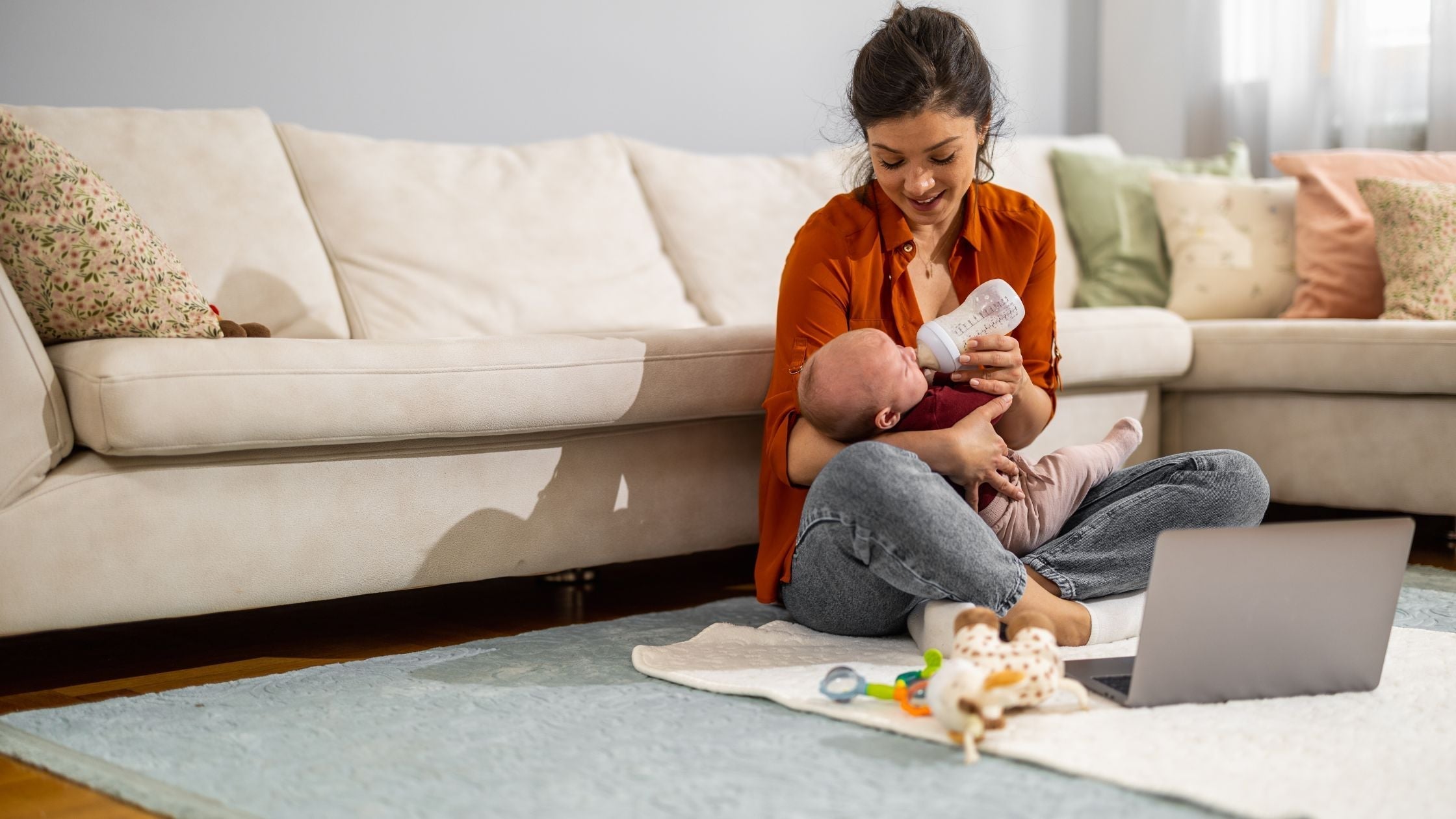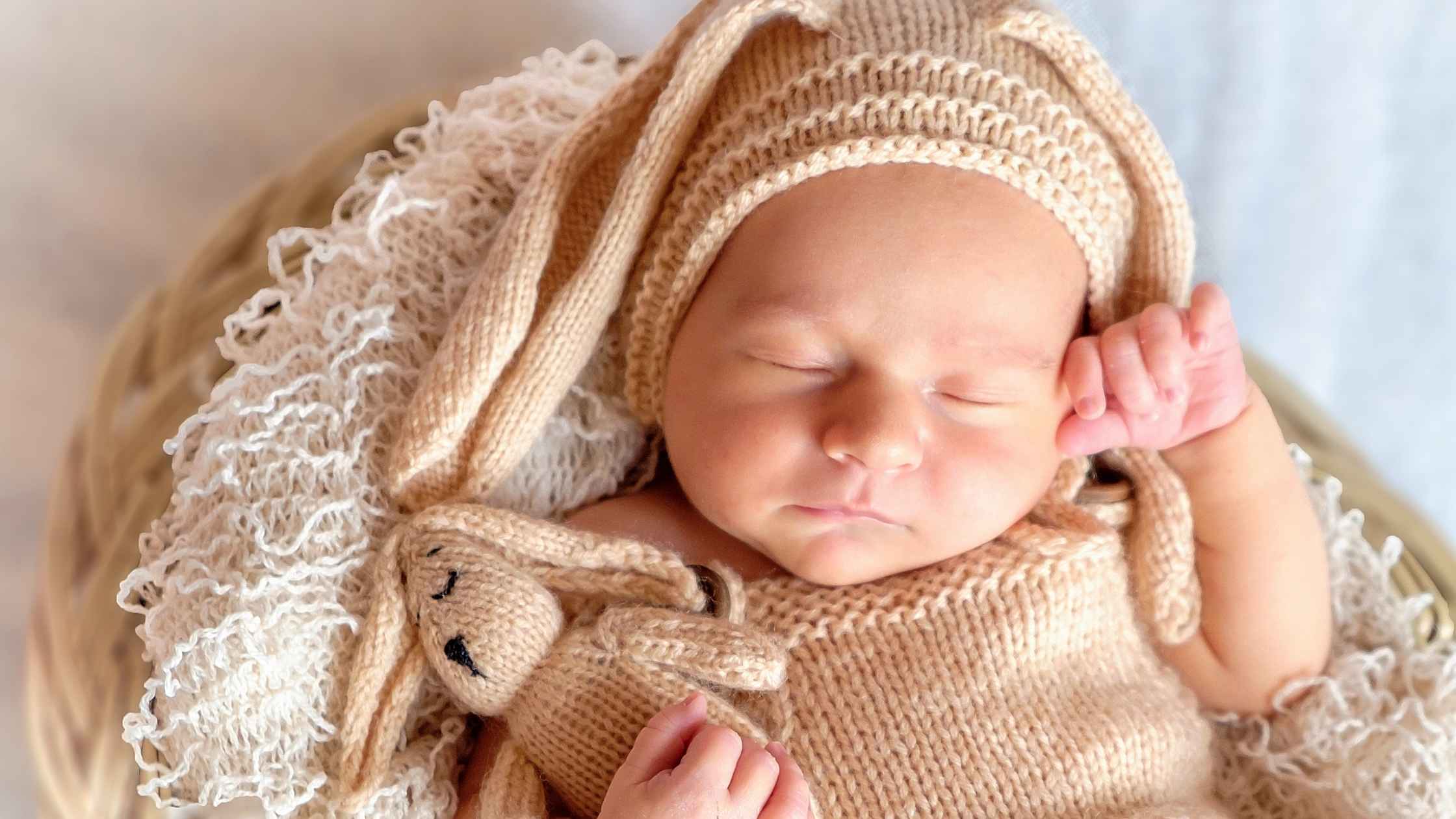
Introduction
As you prepare to nourish your baby with European organic baby formulas, you're taking a thoughtful step towards their health and well-being. Whether you're using HiPP, Holle, Kendamil, or Lebenswert Bio, these formulas offer a great way to provide your baby with essential nutrients. However, to ensure your baby gets the most out of these formulas, it's important to prepare them correctly.
Proper preparation is straightforward and easy to master. By following a few simple steps, you can ensure that your baby's formula is safe and nutritious, avoiding potential issues like contamination. In this article, we'll walk you through a step-by-step guide on how to prepare European baby formulas, helping you feel confident and comfortable in your ability to care for your little one.
Choosing the Right Formula
When it comes to European organic baby formulas, several brands stand out for their quality and unique features. Here’s a brief overview of some of the most popular options:
-
HiPP: Known for its organic and specialty formulas, HiPP is a favorite among parents due to its close imitation of breast milk and focus on essential nutrients for infant development. HiPP organic formulas contain prebiotics and probiotics, which support digestive health, and include Metafolin, a form of vitamin B9 crucial for neural development. They also feature essential fatty acids like DHA and AA, which promote eye, brain, and neural development.
-
Holle: Holle formulas are renowned for their organic and biodynamic ingredients, sourced from sustainable farms. They offer goat’s milk options, which can be gentler on sensitive stomachs. Holle formulas are free from added prebiotics and probiotics, making them a "clean" formula choice. They include plant-based DHA for brain and eye development and are rich in essential vitamins and minerals.
-
Kendamil: Kendamil stands out for its use of whole milk and absence of palm oil and fish oil. Their formulas are designed to mimic the composition of natural breast milk closely, with a focus on gentle digestibility. Kendamil also offers goat’s milk formulas, which are ideal for babies with sensitivities. Their formulas include prebiotics like GOS and FOS to support healthy digestion and immunity.
-
Lebenswert Bio: Lebenswert Bio offers budget-friendly organic formulas that adhere to strict European standards. While not as widely discussed as HiPP or Holle, Lebenswert Bio provides a cost-effective option for parents seeking organic quality without compromising on nutritional value.
Each of these brands offers unique benefits, so it's important to consider your baby's specific needs and preferences when choosing a formula.
Preparation Instructions
It's time to get hands-on! Preparing European baby formulas is a breeze once you know the steps. Think of it as a special ritual you get to share with your baby every day—a moment to connect and ensure they're getting the best possible start in life. Here’s how to do it safely and effectively:
-
General Guidelines:
-
Boiling Water: Use freshly boiled water for each meal. This ensures that the water is free from bacteria and other contaminants.
-
Cooling Water: Allow water to cool to around 50°C (120°F) before mixing with formula powder. This temperature helps prevent the destruction of nutrients.
-
Hygiene: Ensure all utensils and surfaces are clean and sterilized. A clean environment is crucial for preventing contamination.
-
Step-by-Step Preparation:
-
Pour Water: Add 2/3 of the required water into a sterilized bottle. Make sure the bottle is clean and dry before use.
-
Add Formula Powder: Use the provided scoop to add the correct amount of powder (usually 1 scoop per 30ml of water). Level the scoop carefully to avoid over- or under-dosing.
-
Mix and Shake: Close the bottle and shake vigorously until the powder dissolves completely. This ensures the formula is evenly mixed and safe for consumption.
-
Add Remaining Water: Top up with the remaining water and shake again. This helps maintain the correct consistency.
-
Cool to Drinking Temperature: Use cold water or a cold compress to cool the formula to around 37°C (98°F). This is the perfect temperature for feeding.
-
Test Temperature: Always check the temperature before feeding to ensure it's comfortable for your baby.
Safety Precautions
While preparing European baby formulas is straightforward, there are a few important safety precautions to keep in mind. These simple steps can make a big difference in maintaining your baby's health and safety:
-
Avoiding Contamination: Always use freshly boiled water and ensure that all utensils and surfaces are clean and sterilized. This helps prevent bacterial contamination, which can be harmful to your baby.
-
Storage and Handling: Store unopened formula containers in a cool, dry place. Once opened, keep the container tightly sealed and use within the recommended timeframe. Prepared formula should be stored in the refrigerator and used within 24 hours. Never leave prepared formula at room temperature for more than two hours.
-
Water Quality: Use filtered or bottled water if you're unsure about the quality of your tap water. This can help reduce the risk of mineral imbalances or contamination.
-
Microwave Safety: Never use a microwave to heat formula, as it can create hot spots that can burn your baby's mouth or throat. Instead, use cold water or a cold compress to cool the formula to the right temperature.
By following these safety guidelines, you can ensure that your baby's formula is always safe and nutritious.
Common Mistakes to Avoid
Don't worry, we've all been there—those moments when you're juggling a million things and might accidentally get something wrong. But when it comes to preparing your baby's formula, it's great to be aware of a few common mistakes that can easily be avoided. Think of this as your cheat sheet to becoming a formula-preparing pro!
-
The Temperature Tango: Don't let the water get too hot or too cold! If it's too hot, you might end up with a formula that's lost its nutrients. If it's too cold, the powder might not dissolve properly. Aim for that perfect temperature—around 50°C (120°F) before mixing.
-
The Scoop Scoop: It's easy to get carried away with scooping, but remember, too much or too little formula can throw off the nutritional balance. Always use the scoop provided and level it carefully. It's like baking a cake—measure those ingredients just right!
-
The Formula Fridge Frenzy: Don't let prepared formula hang out at room temperature for too long. If you're not using it immediately, pop it into the fridge and use it within 24 hours. And remember, if it's been sitting out for more than two hours, it's time to say goodbye.
By avoiding these common mistakes, you'll be well on your way to becoming a master formula preparer. Your baby will thank you (in their own special way, of course!) for the love and care you put into every bottle.
Conclusion
Preparing European baby formulas is a simple yet important part of caring for your baby. By following these steps and avoiding common mistakes, you can ensure your little one receives the nutrients they need to thrive. Whether you're using HiPP, Holle, Kendamil, or Lebenswert Bio, the key is consistency and attention to detail.
At Organic Formula Hub, we're here to support you every step of the way. Explore our range of organic European formulas and discover the perfect fit for your baby. With the right formula and a little practice, you'll be a pro at preparing delicious and nutritious meals for your baby in no time!
Remember, every bottle is a chance to show your love and care. So, take a deep breath, enjoy the journey, and know that you're giving your baby the best possible start in life.
FAQ
Here are some answers to frequently asked questions about preparing European baby formulas:
-
Q: Can I use tap water to prepare formula?
-
A: Yes, you can use tap water if it's safe and clean. However, if you're unsure about the quality, consider using filtered or bottled water.
-
Q: How long can prepared formula be stored?
-
A: Prepared formula should be stored in the refrigerator and used within 24 hours. If left at room temperature, it should be discarded after two hours.
-
Q: Can I reheat formula in the microwave?
-
A: No, never use a microwave to heat formula. It can create hot spots that can burn your baby's mouth or throat.
-
Q: What if I accidentally add too much or too little formula powder?
-
A: If you notice the mistake immediately, you can adjust the formula accordingly. However, if the formula has been prepared incorrectly and you're unsure, it's best to discard it and start again.
-
Q: Can I prepare formula in advance for the day?
-
A: It's best to prepare formula just before feeding to ensure freshness and safety. However, you can prepare bottles with water and add the formula powder just before feeding if needed.
-
Q: How do I know if my baby is tolerating the formula well?
-
A: Look for signs like regular bowel movements, no excessive gas or spit-up, and overall contentment. If you notice any issues, consult with your pediatrician.
References
-
[Mayo Clinic: Infant Formula - 7 Steps to Prepare It Safely](https://www.mayoclinic.org/healthy-lifestyle/infant-and-toddler-health/in-depth/infant-formula/art-20045791)
This guide provides a detailed, step-by-step approach to safely preparing infant formula, including tips on water temperature, hygiene, and storage. -
[Nationwide Children's Hospital: Bottle Feeding Formula Preparation](https://www.nationwidechildrens.org/family-resources-education/health-wellness-and-safety-resources/helping-hands/bottle-feeding-formula-preparation)
A practical resource covering everything from measuring formula to safe storage practices, with clear warnings against common mistakes like microwave heating. -
[KidsHealth: Formula Feeding FAQs - Preparation and Storage](https://kidshealth.org/en/parents/formulafeed-storing.html)
Answers common questions about formula preparation, including water safety, proper mixing techniques, and how to store prepared bottles. -
[HSE Ireland: Preparing Baby Formula](https://www2.hse.ie/babies-children/bottle-feeding/preparing-baby-formula/)
This guide emphasizes the importance of hygiene and provides detailed instructions for preparing powdered infant formula safely. -
[FDA: Handling Infant Formula Safely](https://www.fda.gov/food/buy-store-serve-safe-food/handling-infant-formula-safely-what-you-need-know)
A comprehensive resource from the FDA covering safe handling and preparation of infant formula, with tips on cleaning equipment and ensuring proper nutrition.



